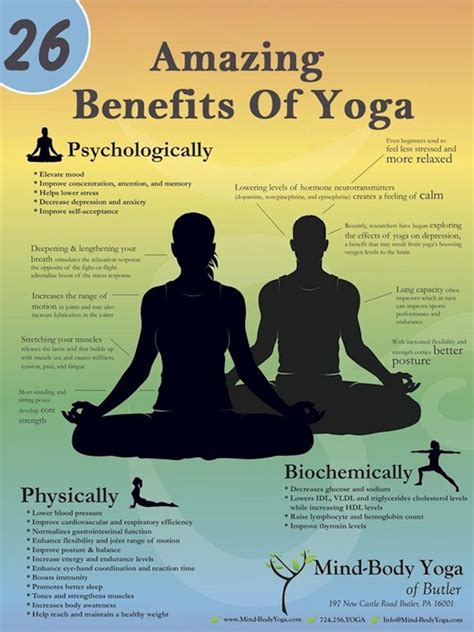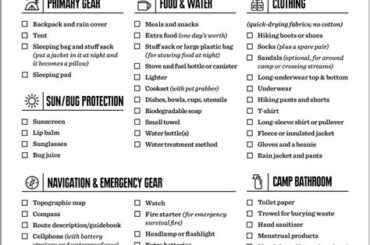Reduction in Anxiety and Stress Levels
Reducing Anxiety and Stress Levels
Anxiety and stress have become increasingly common in today’s fast-paced and hectic world. Many individuals struggle with these overwhelming emotions, impacting their overall well-being and quality of life. However, there is hope. Various techniques and practices can help individuals effectively manage and reduce anxiety and stress levels, promoting a healthier and more fulfilling life.
One powerful approach to reducing anxiety and stress is through mindfulness and meditation. These practices involve intentionally focusing one’s attention on the present moment, without judgment. By cultivating a sense of mindfulness, individuals can observe their thoughts and emotions objectively, without becoming entangled in them. Research has shown that regular mindfulness meditation can significantly decrease anxiety and stress levels, as well as improve overall mental well-being.
Another effective tool for reducing anxiety and stress is regular physical exercise. Engaging in activities such as running, swimming, or yoga not only helps release tension in the body but also stimulates the production of endorphins – the body’s natural mood-boosting hormones. Exercise has been proven to reduce anxiety and stress levels by promoting a sense of relaxation and overall happiness. Incorporating regular exercise into your daily routine can provide immense benefits for your mental and emotional well-being.
Creating a balanced lifestyle and taking time for self-care is also vital in reducing anxiety and stress. This includes prioritizing activities that bring joy and relaxation, such as spending time in nature, pursuing hobbies, or connecting with loved ones. Additionally, ensuring you get an adequate amount of quality sleep is crucial. Lack of sleep can exacerbate anxiety and stress, while ample rest rejuvenates the mind and body, promoting emotional resilience.
In summary, reducing anxiety and stress levels is within reach for everyone. Through mindfulness and meditation practices, regular exercise, and creating a balanced lifestyle, individuals can effectively manage their emotional well-being and experience a reduction in anxiety and stress. Taking these steps will lead to greater peace of mind, improved overall health, and a more fulfilling life.
| Benefits of Reducing Anxiety and Stress |
|---|
| – Improved mental well-being |
| – Enhanced focus and cognitive function |
| – Better sleep quality and insomnia relief |
| – Increased self-awareness and mindfulness |
Improved Mood and Emotional Well-being
Improving our mood and emotional well-being is a crucial aspect of leading a happy and fulfilling life. Our emotions play a significant role in how we perceive and respond to various situations, and having a positive emotional state can enhance our overall well-being. Fortunately, there are several strategies and techniques we can incorporate into our daily lives to improve our mood and emotional well-being.
One of the most effective ways to improve our mood and emotional well-being is through engaging in regular physical exercise. Exercise has been proven to release endorphins, also known as “feel-good” hormones, which are responsible for boosting our mood and reducing stress and anxiety levels. Incorporating activities such as jogging, swimming, or even taking a brisk walk can make a notable difference in our emotional well-being.
In addition to exercise, practicing gratitude can also significantly improve our mood and emotional well-being. Taking the time each day to reflect on the things we are grateful for can shift our focus towards positivity and promote a sense of contentment. Whether it’s expressing gratitude for a supportive friend or appreciating the beauty of nature, practicing gratitude can help us cultivate a more optimistic outlook on life.
Furthermore, maintaining healthy relationships and social connections can have a profound impact on our mood and emotional well-being. Humans are social beings, and nurturing meaningful connections with others can provide us with a sense of belonging and support. Spending quality time with loved ones, participating in group activities or joining clubs and organizations that align with our interests can enhance our overall emotional well-being.
Lastly, self-care practices like meditation and mindfulness can significantly contribute to improving our mood and emotional well-being. Taking the time to engage in activities that promote relaxation and self-reflection can help us manage stress and develop greater self-awareness. By incorporating meditation or mindfulness techniques into our daily routine, we can cultivate a calmer mind and a more positive emotional state.
In conclusion, improving our mood and emotional well-being is essential for leading a fulfilling life. By incorporating strategies such as regular exercise, practicing gratitude, maintaining healthy relationships, and engaging in self-care practices, we can enhance our overall emotional well-being and experience a greater sense of happiness and contentment. Remember, taking small steps towards improving our emotional well-being can make a significant difference in our overall quality of life.
Enhanced Cognitive Function and Focus
Having a sharp and focused mind is essential for success and productivity in today’s fast-paced world. However, many people struggle to maintain their cognitive function and concentration due to various factors such as stress, lack of sleep, and age-related decline. Luckily, there are several techniques and practices that can help enhance cognitive function and improve focus. Incorporating these habits into your daily routine can lead to increased mental clarity, improved productivity, and better overall cognitive performance.
One effective way to enhance cognitive function is through regular exercise. Physical activity has been shown to have numerous benefits for the brain, including increased blood flow and the release of endorphins, which can improve mood and overall cognitive function. Engaging in activities such as jogging, cycling, or even taking a brisk walk can stimulate the brain and enhance focus.
In addition to exercise, proper nutrition plays a vital role in cognitive function and focus. Consuming a diet rich in fruits, vegetables, whole grains, and lean proteins provides the essential nutrients and antioxidants needed for optimal brain health. Omega-3 fatty acids, found in fatty fish and nuts, are particularly beneficial for brain function and can improve focus and memory.
- Engaging in activities that stimulate the brain, such as puzzles, memory games, or learning a new skill, can improve cognitive function and focus. These activities challenge the brain and help build new neural connections, enhancing overall cognitive abilities over time.
- Managing stress is another crucial aspect of improving cognitive function. Chronic stress can negatively impact the brain and impair focus and memory. Incorporating stress-management techniques such as meditation, deep breathing exercises, or engaging in hobbies and activities that you enjoy can help reduce stress levels and improve cognitive performance.
- Getting enough sleep is essential for cognitive function and focus. Lack of sleep can impair attention, memory, and overall brain performance. Establishing a consistent sleep routine and creating a relaxing sleep environment can help improve sleep quality, leading to enhanced cognitive function and better focus during the day.
In conclusion, enhancing cognitive function and focus is possible through various lifestyle changes and practices. Incorporating regular exercise, maintaining a healthy diet, engaging in brain-stimulating activities, managing stress effectively, and prioritizing quality sleep are all essential steps towards improving cognitive performance. By adopting these habits, you can sharpen your mind, boost productivity, and achieve better overall cognitive function and focus.
Better Sleep Quality and Insomnia Relief
Getting a good night’s sleep is crucial for our overall well-being. Yet, many people struggle with insomnia and poor sleep quality. If you’re one of them, you know how frustrating it can be to toss and turn all night, unable to find that sweet spot of relaxation and rest. Fortunately, there are several techniques and practices that can help improve your sleep quality and provide relief from insomnia. In this blog post, we’ll explore some effective strategies that can help you achieve better sleep and conquer those restless nights.
1. Establish a bedtime routine: Creating a consistent bedtime routine can signal to your body that it’s time to wind down and prepare for sleep. Try to go to bed and wake up at the same time each day to regulate your internal clock. Additionally, incorporate relaxing activities such as reading a book, taking a warm bath, or practicing gentle stretching exercises before bed.
2. Create a comfortable sleep environment: Your sleep environment plays a significant role in your sleep quality. Make sure your bedroom is dark, quiet, and at a comfortable temperature. Consider investing in a good quality mattress, pillows, and bedding that provide adequate support and comfort for your body.
3. Limit screen time before bed: The blue light emitted by electronic devices like smartphones, tablets, and laptops can interfere with your sleep. Try to avoid screens for at least an hour before bedtime. Instead, engage in relaxing activities like reading a book or practicing deep breathing exercises.
4. Practice relaxation techniques: Incorporating relaxation techniques into your bedtime routine can help calm your mind and promote better sleep. Techniques such as meditation, progressive muscle relaxation, and guided imagery can help reduce stress and anxiety, allowing you to drift off into a more restful sleep.
5. Manage stress: High levels of stress can significantly impact your sleep quality. Take proactive steps to manage stress throughout your day by engaging in stress-reducing activities such as exercise, yoga, or journaling. By addressing and reducing stress, you can create a more conducive environment for improved sleep.
By implementing these strategies and making sleep a priority, you can experience better sleep quality and find relief from insomnia. Remember, it’s essential to be consistent and patient as it may take time for your body to adjust to new sleep habits. With dedication and perseverance, you can achieve the restful sleep you deserve and wake up feeling refreshed and revitalized each morning.
Increased Self-awareness and Mindfulness
Increasing self-awareness and mindfulness is a powerful tool for personal growth and development. By being more conscious of our thoughts, emotions, and actions, we can better understand ourselves and our interactions with the world around us. Mindfulness, in particular, involves being present in the current moment and fully engaging with our experiences. This practice has gained popularity in recent years due to its numerous benefits for mental and emotional well-being. In this blog post, we will explore how increasing self-awareness and practicing mindfulness can enhance our lives and lead to a sense of clarity and fulfillment.
One of the key benefits of increasing self-awareness and mindfulness is a reduction in anxiety and stress levels. When we are more aware of our thoughts and feelings, we can identify sources of stress and address them more effectively. By practicing mindfulness, we can train our minds to focus on the present moment, rather than ruminating on past events or worrying about the future. This can help break the cycle of anxious thoughts and promote a sense of calm and relaxation. Studies have shown that regular mindfulness practice can significantly reduce symptoms of anxiety and stress, allowing individuals to experience greater peace of mind and overall well-being.
In addition to reducing anxiety and stress, practicing self-awareness and mindfulness can lead to an improved mood and emotional well-being. When we are more attuned to our emotions and the underlying causes, we can better regulate them and respond in healthier ways. By acknowledging and accepting our emotions without judgment, we can avoid getting caught up in negative thought patterns and destructive behaviors. This self-compassion and emotional resilience can enhance our overall mood and cultivate a greater sense of happiness and contentment in life.
Enhanced cognitive function and focus are also among the benefits of increasing self-awareness and practicing mindfulness. When we are fully present in the moment, we can engage with tasks more deeply and concentrate on the task at hand. Mindfulness has been shown to improve attention, memory, and decision-making abilities. By training our minds to be more focused and aware, we can enhance our cognitive abilities and optimize our mental performance. This can be especially beneficial in today’s fast-paced world, where distractions are everywhere and staying focused can be a challenge.
To summarize, increasing self-awareness and practicing mindfulness can have profound effects on our lives. By reducing anxiety and stress levels, improving mood and emotional well-being, and enhancing cognitive function and focus, we can navigate life with greater clarity and resilience. As we cultivate self-awareness and mindfulness, we can experience a deeper connection with ourselves and the world around us, leading to a more fulfilling and meaningful life.
Frequently Asked Questions
1. How does meditation reduce anxiety and stress levels?
Meditation helps reduce anxiety and stress by activating the body’s relaxation response, lowering cortisol levels, and promoting a sense of calm and tranquility.
2. Can meditation improve mood and emotional well-being?
Yes, meditation has been shown to improve mood and emotional well-being by increasing the production of endorphins, the body’s natural feel-good chemicals, and promoting positive emotions.
3. How does meditation enhance cognitive function and focus?
Meditation improves cognitive function and focus by increasing grey matter in the brain, enhancing neural connections, and strengthening the prefrontal cortex, which is responsible for decision-making, attention, and self-control.
4. Can meditation help improve sleep quality and relieve insomnia?
Yes, meditation can help improve sleep quality and relieve insomnia by calming the mind, reducing racing thoughts, and promoting relaxation, making it easier to fall asleep and maintain a deep and restful sleep throughout the night.
5. How does meditation increase self-awareness and mindfulness?
Meditation increases self-awareness and mindfulness by training the mind to focus on the present moment, observe thoughts, emotions, and bodily sensations without judgment, and cultivate a non-reactive and accepting attitude.
6. What are some techniques to practice mindfulness during meditation?
Some techniques to practice mindfulness during meditation include focusing on the breath, body scan meditation, loving-kindness meditation, and mindful walking or eating.
7. How often and for how long should I meditate to experience these benefits?
The frequency and duration of meditation can vary depending on individual preferences and schedules, but as a general guideline, it is recommended to start with 5-10 minutes per day and gradually increase to 20-30 minutes. Consistency in practice is more important than the length of each session.





